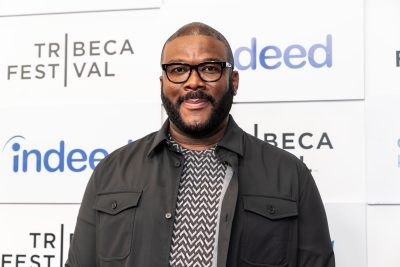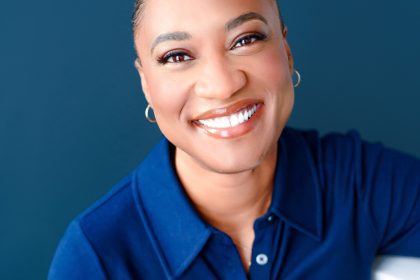When Janelle Bynum won her congressional race in November 2024, becoming the first Black woman to represent Oregon in Congress, she wasn’t just making history. She was validating a training methodology that has quietly revolutionized how Democratic women prepare for political office.
Bynum is one of three recent Emerge program graduates to reach Congress, all products of the organization’s specialized “Seated Together” initiative designed for Black women already holding office who aim to ascend further. Her success represents a data point in what is becoming an undeniable pattern: Emerge’s systematic approach to candidate development works, and the metrics prove it.
Beyond inspiration to implementation
Unlike the motivational seminars and networking events that characterize much of political training, Emerge operates on a fundamentally different premise: running for office is a technical skill that can be taught, practiced, and mastered.
“We’re building infrastructure, which means we just weren’t going to come in, do some work and leave,” explains A’shanti F. Gholar, president of Emerge. This infrastructure-focused approach distinguishes the organization from the campaign-season operations that, in Gholar’s words, create “so much energy, and then, after the election, everyone left and abandoned us.”
With over 6,000 women trained since its founding, Emerge now maintains rigorous data on its effectiveness. The organization’s alumnae have a win rate that significantly outperforms typical first-time candidates, particularly among women of color. This success isn’t accidental but engineered through a curriculum designed to address the specific obstacles women face in political campaigns.
The methodology behind the movement
Emerge’s training is distinguished by its comprehensive approach. Rather than focusing solely on public speaking or fundraising, the program covers everything from message development to campaign finance regulations to voter targeting. Each participant emerges with not just knowledge but a concrete, actionable plan.
The methodology developed through years of refinement takes women through a series of modules that build upon each other. This progressive approach means candidates don’t just learn what to do, they practice it repeatedly until it becomes second nature.
“When I took over Emerge, we were just finishing up our previous vision, which was expanding our affiliate reach and starting to expand new programming,” Gholar notes. “So I had to create the new vision with the team, and we knew we just wanted to get back to the basics.”
This back-to-basics approach has meant focusing on the fundamental skills that translate to electoral victories regardless of office level. The training emphasizes message discipline, fundraising prowess, and voter contact strategies, with particular attention to the unique challenges women candidates face.
Specialized cohorts for specialized needs
Perhaps the most innovative aspect of Emerge’s methodology is its recognition that different candidates face different challenges. This has led to the development of specialized programs like Seated Together, which addresses the specific needs of Black women elected officials seeking higher office.
“Women, especially Black women in particular, are told to bloom where they’re planted,” Gholar observes. “I think that’s something the patriarchy teaches us. ‘Oh, just be happy! People voted for you and you won, and you get to be in here making decisions.’ No, we can continue to ascend.”
The results speak for themselves. The first three cohorts of Seated Together have each produced a member of Congress: co-founder Emilia Sykes from the first cohort, Janelle Bynum from the second, and LaMonica McIver from the third, who won a special election despite facing “over a dozen people” in the primary.
This pattern of success demonstrates the effectiveness of tailored training that addresses the specific obstacles faced by women at different stages of their political careers. Emerge’s methodology acknowledges that the skills needed to win a school board seat differ from those required for Congress, and their curriculum adapts accordingly.
Training for persistence
Perhaps the most distinctive aspect of Emerge’s methodology is its focus on resilience. Recognizing that many candidates don’t win on their first attempt, the organization explicitly prepares women for the possibility of defeat and how to use it as a stepping stone rather than a stopping point.
“Every year at Emerge, I call our alums that win, and I also call our alums that don’t win,” Gholar explains. “Because when you don’t win, the phone stops ringing, no one really cares anymore.”
This attention to the full cycle of campaigning, including potential loss, has created a culture where persistence is valued as highly as victory. Multiple Emerge alumnae who now hold significant offices lost their first races, a fact the organization celebrates rather than minimizes.
Their approach contrasts sharply with the winner-take-all mentality that pervades much of politics. “This is also what happens when you don’t focus on the things you may have lost in one election cycle,” notes Tonya Williams, who interviewed Gholar. “It’s a process. It happens over years.”
This long-term perspective informs not just how Emerge trains candidates but how it measures success. While election victories provide the most visible metrics, the organization also tracks increases in fundraising capacity, volunteer recruitment, and media coverage among its alumnae, recognizing that building these capabilities over time leads to eventual electoral success.
Data-driven recruitment
Emerge’s methodology begins before training even starts, with a sophisticated recruitment strategy that identifies potential candidates who might never consider running without external encouragement.
“Part of our job is to make sure that they just don’t go out there and vote, to let them know that they can put their name on the ballot as well,” Gholar says about the “new American majority” of women of color, LGBTQ+ women, young women, and unmarried women that Emerge increasingly focuses on recruiting.
This recruitment doesn’t happen by accident. Emerge uses data analysis to identify communities with demographic profiles suggesting strong potential candidates but limited representation. They then partner with local organizations to find women with leadership experience who might translate those skills to public office.
The approach has significantly diversified the candidate pipeline. “We’ve actually seen an increase in our new American majority numbers at our national level for trainings, at our state level for trainings,” Gholar notes with pride.
The vision to 2035
Emerge’s current methodology fits within a larger strategic framework. The organization operates on a 15-year vision extending to 2035, divided into three 5-year phases. This long-term planning allows for methodical program refinement and expansion.
“In our Emerge 2035 vision, it’s a 15-year vision that we created, we just finished the first third, now we’re in the second third,” Gholar explains. This strategic approach ensures that the organization continuously evaluates and improves its training methodology.
As Democratic women face unprecedented challenges in the current political climate, Emerge’s data-driven, methodical approach to candidate development offers a proven pathway to elected office. With 520,000 elected positions in the United States, most at the state and local level, the organization’s systematic training creates a pipeline of prepared candidates ready to run, win, and govern effectively.
For women considering a run for office, the message is clear: political success isn’t just about charisma or connections, it’s about mastering a learnable set of skills. And no organization has demonstrated more success at teaching those skills than Emerge.











